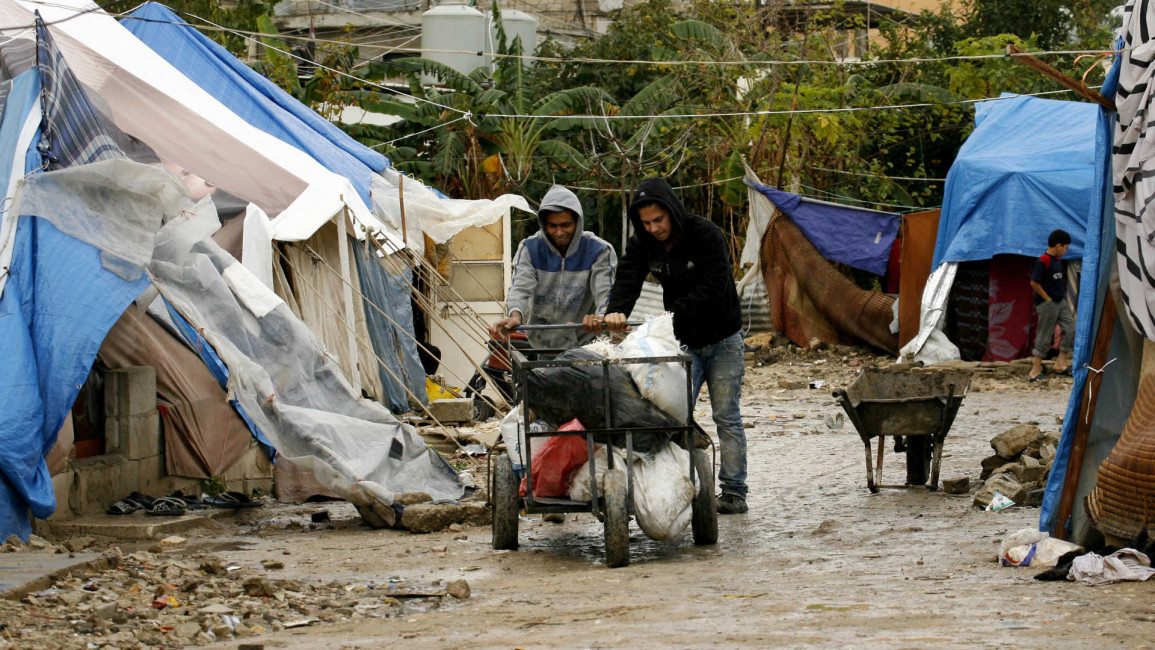
'Social explosion' threatens Lebanon's hard-won peace
Some of the most influential media outlets often appear only able to focus on one area of the Middle East at a time, and while the world tunes in sporadically to the turmoil in Syria, a crisis is brewing in one of the more forgotten parts of the region: Lebanon.
After the US administration's announcement to cut by half their funding to The United Nations Relief and Works Agency (UNRWA) earlier this year, I spoke with a teacher from one of Lebanon's UNRWA schools in Beirut.
His anxiety for the future of the Palestinian refugee community in Lebanon was palpable. He spoke of the desperation into which those cuts would lead people, and how this already highly vulnerable group being exposed to even greater deprivation would create a "social explosion".
This explosion would occur within a vacuum of services, youth left without education, employment drastically reduced, and the sick left without treatment. The world over, criminality and violence easily finds a home when there is nothing left to offer.
The crisis was exacerbated by the US administration's announcement in September that all UNRWA funding would be withdrawn, creating a perfect storm of events to entrench divisions, perpetuate the conflict, and destabilise the region.
 |
Lebanon has the highest percentage of Palestine refugees living in abject poverty |  |
Sylvia Hadad, of Palestinian-Lebanese organisation JCC told me, "we are very, very scared". Scared for the vacuum that will be left in the wake of the services they provide and what might fill this gap, leading to long-term destabilisation and conflict for Palestinian refugees, the countries that host them and the region as a whole.
In Lebanon, there are close to half a million Palestinian refugees. Restrictive state policy means that they do not share many of the same rights of their Lebanese counterparts. Not surprisingly then, Lebanon has the highest percentage of Palestine refugees living in abject poverty.
Twitter Post
|
Caught in this restricted space, generations are highly dependent on UNRWA services - which in turn provide much needed employment opportunities. Palestinian refugee camps across Lebanon are at breaking point, with very poor service provision.
This week International Alert launched their Peace Perceptions Poll. Across the board, lack of access to economic opportunities was prioritised as a driver of conflict, followed by a sense of injustice.
The experience of Palestinian refugees in Lebanon is typified by both. They have lived through decades of economic and social exclusion, in cramped camps without proper access to basic services and suffered terribly during the civil war that wracked Lebanon.
After decades of injustice, they now face a challenge threatening what stability they have managed to create for themselves. As the UNRWA Commissioner-General has said, at stake "are the rights and dignity of an entire community".
Lebanese NGOs working with Palestinian refugees, including our partner Association Najdeh, are working hard to meet this challenge: Increasing informal education support to UNRWA schools to and discussing plans to ensure sanitation of the camps can be covered as services are depleted.
 |
Restrictive state policy means that Syrians do not share many of the same rights of their Lebanese counterparts |  |
However, this will not be enough. As Najdeh director, Leila el-Ali, told me, if key services are discontinued then daily demonstrations driven by frustration and despair in the camps can be expected.
This Thursday, the UNRWA General Commissioner and UN Secretary-General along with several country representatives will meet at the United Nations General Assembly to discuss this crisis.
Talks must address how these cuts threaten regional stability and undermine the very existence of one of the most vulnerable displaced groups in the world. Left ignored by the world, the "social explosion" that threatens Lebanon's hard-won peace remains frighteningly possible.
Mairead Collins is advocacy officer, Syria, Iraq and Lebanon at Christian Aid.
Join the conversation @The_NewArab
This article was originally published by the Reuters Trust Foundation.
Opinions expressed in this article remain those of the author, and do not necessarily represent those of The New Arab, its editorial board or staff.



